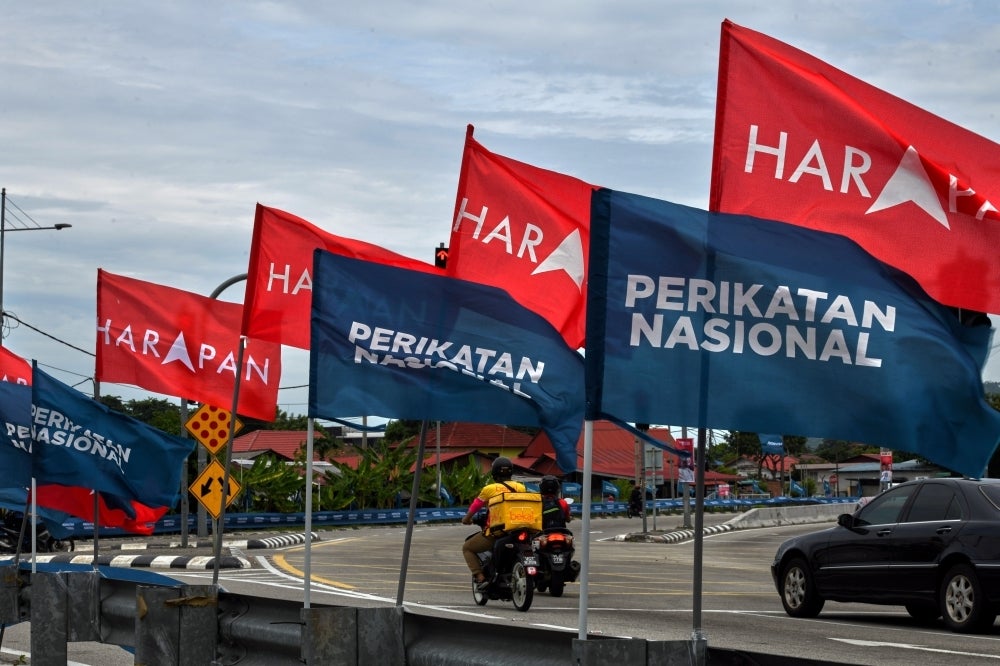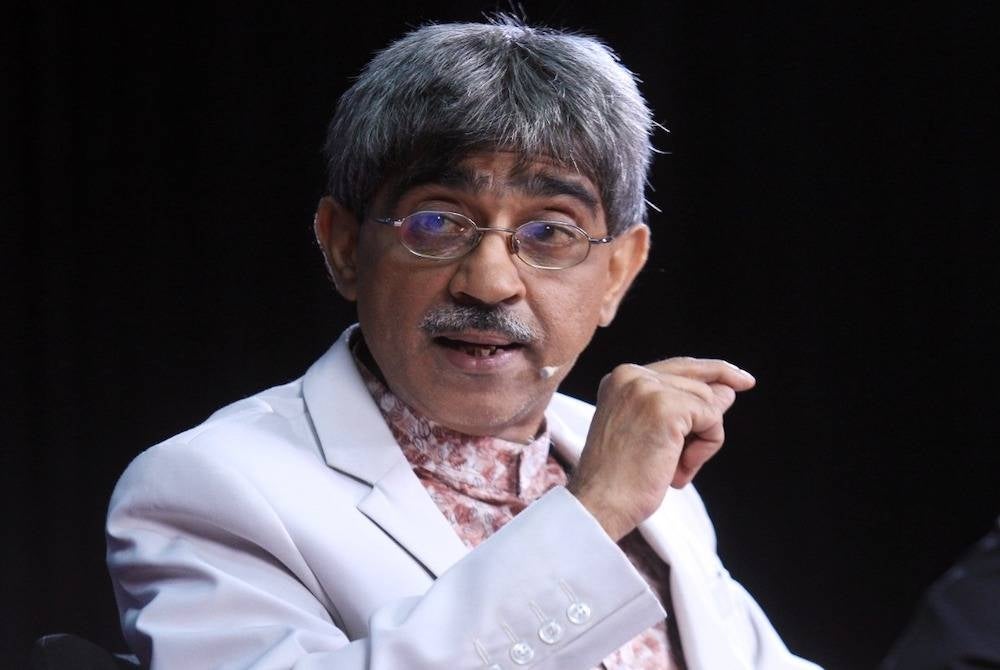Slim majorities define outcome of 26 state seats
MOHD FAIZUL HAIKA MAT KHAZI
SHAH ALAM - The outcome of the state elections on Saturday saw a total of 26 state seats secured by the Pakatan Harapan (PH)-BN and Perikatan Nasional (PN) coalitions, with slim majorities of under 1,000 votes.
Negeri Sembilan recorded 11 state seats, Selangor (nine), Kelantan (two), Penang (two), and one each in Kedah and Terengganu.
In terms of party results, PN secured 11 state seats with a majority of less than 1,000 votes, followed by BN with 10, while PH won five state seats.
Taman Medan drew attention when the PN candidate, Dr Afif Bahardin, emerged victorious over PH candidate Ahmad Akhir Pawan Chik with a slim majority of 30 votes.
Afif clinched victory with 22,316 votes, slightly surpassing Ahmad's 22,286 votes.
The Gombak Setia state seat gained prominence due to incumbent Muhammad Hilman Idham's switch from PH to PN in the 14th general election (GE14) following the Sheraton Move in February 2020.
Hilman secured 30,299 votes with a slim majority of 58, prevailing over Selangor BN chairman Datuk Megat Zulkarnain Omardin with 30,241 votes.
In the Juasseh state seat, Puan Sri Bibi Sharliza Mohd Khalid, wife of former Negeri Sembilan Menteri Besar Tan Sri Mohd Isa Samad, triumphed over PN candidate Datuk Eddin Syazlee Shith with a majority of 78 votes.
Bibi Sharliza garnered 4,549 votes, overcoming Eddin Syazlee, the former Deputy Minister of Communications and Multimedia, who received 4,471 votes.
The narrow majorities, all below 1,000 votes, have led some parties to discuss the possibility of filing election petitions to challenge the election results.
Selangor PH chairman Datuk Seri Amirudin Shari confirmed that the PH-BN coalition was considering filing four election petitions to challenge the results in Sungai Kandis, Taman Medan, Gombak Setia, and Dengkil, where the margins were low.
Amirudin said that the decision to challenge these seats was influenced by the slim margins: Dengkil (407), Sungai Kandis (167), Gombak Setia (58), and Taman Medan (30).
However, would filing an election petition give the claiming parties an advantage, considering that such petitions need to be based on specific principles?
The Election Commission (EC) clarified that a recount could only occur at the polling stations rather than the official tallying centers if the margin of victory were below four per cent.
Senior lawyer Haniff Khatri Abdulla explained that even if a candidate wins by a small margin, filing a petition against the result in the High Court doesn't necessarily guarantee success.

He noted that a petition could be submitted to the High Court if offenses such as bribery, coercion, or misconduct that could impact the election outcome were involved.
"Parties could also file a petition if they found non-compliance with election laws and regulations by any party. An election petition could be filed if there were instances of corruption or misconduct by candidates and their agents, as seen in the annulment of the Kuala Terengganu Parliamentary seat results in GE15," he told Sinar Premium.
Haniff Khatri added that all election petitions must be filed in the High Court within 21 days of the election being officially gazetted.
He highlighted that parties seeking to file a petition must prepare substantial evidence, including videos, photos, and other materials, to present in court if they wish to challenge the results.
"After the trial, if the judge deems the results invalid, the EC would issue a notice stating that a by-election will be held," he stated.
The reason for the narrow margins in the 26 constituencies, according to Ilham Centre Research chief Associate Professor Dr Mohd Yusri Ibrahim, was intense competition to win over voters.

He explained that the competition became more aggressive in constituencies with the inclusion of independent candidates or smaller parties like Muda and Parti Rakyat Malaysia (PRM), resulting in PH-BN or PN candidates winning by slight margins.
Yusri cited examples in Selangor where PN secured Gombak Setia and Sungai Kandis by thin margins due to the presence of Muda candidates.
"Muda candidates, even though they lost their deposits, influenced the election outcome as they resonated with the psychographics of young PH voters. If Muda hadn't contested in those seats, it's possible that PH-BN candidates would have won in several state seats," he explained.
Yusri also noted that some state seat winners owed their victories to undecided youth voters and those who couldn't return home to vote.











